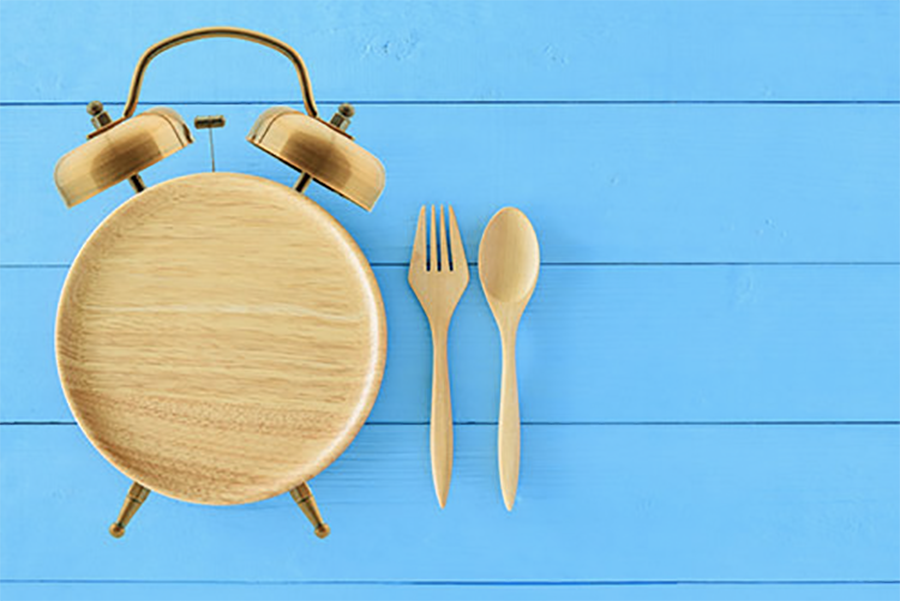
Meal timing and your weight
Are you worried or stressed about possible weight gain over the festive period? Maybe you’re not worried, but just want to indulge yourself and hope that your waistline does not suffer – too much!
Although we hope that you’ll look for every opportunity to be physically active, it takes a lot of exercise to compensate for even minor indulgences: food or drink.
However, apart from sticking to your eating plan, as closely as possible, there’s one extra thing that can make a difference – MEAL TIMING.
No doubt you’ve heard the term “fasting” or “intermittent fasting”. Did you know that you fast regularly – actually every night?
What is fasting?
Fasting is defined as “abstaining from all or some kinds of food or drink, especially as a religious observance”. Of course, it’s unlikely that you eat while you sleep (even though some may dream of eating).
So, what happens during your overnight fast? Well this is a recovery period where your brain and body try to reset themselves. Your body slowing burns through much of your short-term fuel reserves, glycogen in your muscles and liver, but not all of it.
If it did burn through all of it, you’d wake up burning body-fat!
Our Fasting Tips
And so here’s the tip. If you can either eat your night-time meal earlier and/or delay your first meal, this will extend your nightly fast. Doing this will give your body a better chance to move into fat-burning mode.
The longer you delay your first meal the greater the effect. Yes! It really does make a difference. And when you combine this with your eating plan, it’s a one-two punch.
If you add some morning exercise, it’s a one-two-three punch. Having an evening walk after dinner can have an effect too.
There’s no problem having water, black tea or black coffee. Try to avoid artificial sweeteners as there is some evidence that the body may respond hormonally as if you consumed sugar.
There is no proof or truth behind the wives’ tale “Breakfast is the most important meal of the day.” It was probably started by cereal manufacturers in the 1950’s.
And so we are not saying “eat less” but just “eat in a “shorter eating window” to extend the “non-eating window”. In your Daily Planner monitor how you feel, and your weight, to see if it helps.
If you were at your perfect weight and staying at your ideal weight is easy, then you don’t need to think about this. But if you’re trying to lose weight, then this may help… especially when you may have the odd indulgence.
Definitely try this on days when you know you have a potential off-plan eating event happening.
Aim for a non-eating window of 12 hours or more. And so, if you finish your evening meal at 8:30 pm, aim to delay any eating until after 8:30 am. 9:30 would be even better (13 hours), and 10:30 better still (14 hours). Some go further.
Increasing your fasted (non-eating) window is definitely easier if you are already on our dietflex individual controlled carbohydrate eating plan.
Of course you can also bring forward your evening meal. It works either way. But, for many people, especially with families, they have less flexibility on the timing of the evening meal, but the morning meal is easy to skip or delay.
This strategy may give you extra flexibility should you indulge on special occasions over the festive period.
Two last tips are to take your family and friends to the park or for a walk after any meal. Then record everything you eat, the time of each meal and your physical activity in your Daily Planner.





